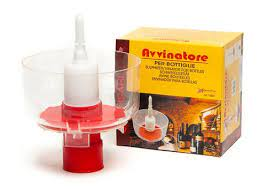- Joined
- Jan 21, 2019
- Messages
- 206
- Reaction score
- 127
Is this way of sterilizing bottles legit? Does anyone do it?
https://boomchugalug.com/pages/baking-beer-bottles
https://boomchugalug.com/pages/baking-beer-bottles

I've done the oven sanitation method for over 3 years with no problems. But I don't go nearly as hot or nearly as long since I'm not trying to sterilize, just sanitize. I rinse well when I finish a bottle, let it dry, put on the foil and stick it in a beer carton. When I have enough for a n oven load, I put them in a cold oven, bring the temp up to 180*F, hold for 20 minutes, then let cool with the oven closed. Less stress on the bottles, less for me to mess with on bottling day. I recommend it.
I've tried many methods of bottle cleaning. I was never completely satisfied until I tried a Papazian method. He wrote about cleaning carboys with 2 oz bleach in 5 gallons of water, with an overnight soak. I use this bleach concentration, but scaled down for just the bottles I am cleaning (one session of beer bottles) - still an overnight soak. It cleans better than anything else I've tried - spotless and no film. Then on bottling day, I spray one bottle with star san using a vinator, while I'm filling the previous bottle - very little extra time involved. For the star san, I give it 30 seconds contact time plus a safety factor - that is what the inventor, Charlie Talley stated is required.

This simple but highly effective method has served me well for years. I’ve tried so many other things, but I just kept going back to this.I keep things simple, make sure the bottles are rinsed out and cleaned before they are put away, then on bottling day, inspected, (although this is redundant, as they've already been cleaned) , rinsed, immersed in bucket of Starsan, dumped out and filled.
I keep things simple, make sure the bottles are rinsed out and cleaned before they are put away, then on bottling day, inspected, (although this is redundant, as they've already been cleaned) , rinsed, immersed in bucket of Starsan, dumped out and filled.
Enter your email address to join: